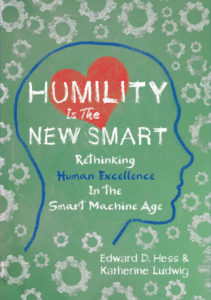Guest Post: A Back-to-School Success Plan for Future-Focused Parents by Katherine Ludwig
 For many families, going back to school means an end to summer slack and a return to tighter schedules, homework haranguing, high achievement expectations, and much less free time.
For many families, going back to school means an end to summer slack and a return to tighter schedules, homework haranguing, high achievement expectations, and much less free time.
If you’re like most parents, you may already be gearing up for serious lectures about grades, study habits, college readiness, and that running rhetorical question: Do you want to end up flipping burgers for the rest of your life? Or maybe if your kid is already highly driven, you’re getting ready to assist in every possible way—financial and otherwise—to assure his highest achievement, whether it’s hiring tutors or running him around to a litany of extracurricular activities, and yourself ragged in the process.
In either case, you may think you’re paving the way for your kid’s future success, but you’re actually not. In fact, parents who are overly focused on the traditional markers of school success—academic excellence and college-application-padding at the expense of everything else—are actually doing kids a disservice.
Also, burger flipping literally won’t be an option for many people in the very near future thanks to advances in cheap robotics. By the time today’s young people enter college or the workforce, the nature of work will be radically different across the board. Technology is expected to automate and massively displace most of what Americans are currently paid to do in both blue collar and white collar industries. Within in a decade or two, unemployment could be as high as 50 percent in this country. No field or skill is safe from encroaching automation due to artificial intelligence—not even computer science or software development.
There’s a growing consensus among technology experts and economists that the jobs and skills safest from automation include social and emotional engagement in service to, care of, or collaboration with other human beings and the kind of critical, creative, and innovative thinking needed to diagnose and solve complex problems and improve other people’s lives. Organizations are expected to drastically reduce headcount, and most humans who do work will be doing so on a contingent, part-time, or consulting basis, requiring them to forge strong human networks and relationships.
There’s no linear road to success in that kind of highly volatile, complex, and uncertain environment. To thrive in the future, today’s kids need to become intrinsically motivated, highly adaptable, lifelong learners who are curious and open-minded enough to think critically and innovatively; resilient enough to experiment, create, fail, and learn from mistakes; and be the kind of humble and socially and emotionally intelligent people who tend to think less about themselves and more about others in order to care about, create for, or collaborate with them.
Our culture actually encourages contradictory mindsets and behaviors—a preoccupation with individual achievements, competitiveness, and self-interest—and our system of schooling and standardized testing rewards knowing more and making fewer mistakes than others rather than learning, creating, experimenting, or caring about the needs of others.
In many ways, we’re stuck as a society in continuing to prepare kids for routine jobs in the industrial or knowledge economies that are soon to be obsolete. In fact, kids are growing up more self-centered, less adaptable, less resilient, and therefore arguably even less prepared than previous generations for the kinds of mindsets, skills, and behaviors they’ll need in the future.
It will take some time for educational institutions and American culture to fully adapt to the new realities of technological automation and the future of work and create a new story about what it means to be a successful human being. Parents, however, can play a big role in counteracting the outdated messaging and revamping priorities for the new school year even if it requires going against the grain of other families.
With your child’s future preparedness in mind, here are eight ways to rethink your back-to-school routine.
Focus on learning, not achievement. What would this look like in your own household? Would it mean caring a little less about GPA and a little more about helping your child discover her own academic interests and strengths? Would it require you to stop micromanaging homework and be more willing to let kids develop into independent, self-sufficient learners even if it means they screw up and suffer academic consequences sometimes? Would it mean saving your highest praise not for when your child makes high scores in school or on the field, but for when she exerts extra effort, challenges herself, learns from mistakes, and bounces back from failure?
Let them struggle and make mistakes. Creativity and learning are not linear. Failure tolerance and resilience are not skills of efficiency. They require exploration, experimenting, false starts, and often failure. They stem from curiosity, flexibility, and intrinsic motivation, not from the constant pressure to perform, be perfect, or respond to extrinsic carrots and sticks. And they won’t develop if you’re always swooping in to save them from inconvenience, embarrassment, or negative repercussions.
Make it a point not to show up at school with forgotten homework or lunches this year. Don’t run to the store at 9 p.m. because your kid just remembered that she needs poster board for a project due the next day. She’ll learn far more from the consequences of missing the deadline than from having you save her grade.
Emphasize kindness. The future world of work won’t need all-knowing, self-focused, Type A competitive types. It will need creative, compassionate, and open-minded people who listen well to and care deeply about others—what they think, how they feel, and what they need. In other words, kids need to develop a profound sense of humility, empathy, and a greater focus on others than themselves. Consider how you might inadvertently foster self-interest or hyper-competitiveness in your kids during the school year and how you might prioritize less self-absorption and more kindness and compassion instead.
If you find yourself regularly pointing out to your child that so-and-so or even a sibling is doing better or achieving more with the intention of motivating him, stop. This only fuels disdain for others and ego protection and emphasizes competitiveness more than collaboration. Don’t just celebrate individual achievements, but also good teamwork. Don’t just talk about being “kind” in the abstract. Give kids tactical ways to practice it. For instance, encourage your daughter to invite the child who sits alone to join her lunch table. Make it a regular dinner ritual to ask how she’s gone out of her way to help others most recently and share your own regular acts of kindness.
When you see unkind behavior, nip it in the bud. Pay close attention to their behavior toward and with other people, and how they talk about others. Because kids are smart enough to walk the straight and narrow when they think you’re watching, their typical way of behaving socially and emotionally may not always be obvious. You should, for example, monitor their social media activity and discuss any mean or unkind behavior you see exhibited by them or others.
Help them connect their strengths and interests to the service of others. Leave more time in their weekly schedules to put the needs of others first—through volunteer tutoring, coaching, or community projects, for example. This shouldn’t be viewed as a nice-to-have only if and when they have the time, but a top priority. And volunteer opportunities shouldn’t be chosen based on what’s most attractive to college admissions panels. Help your kid find ways to serve others in a manner that is personally meaningful to her.
Make sure kids still have regular household chores. Just because they’re back in school doesn’t mean they should get out of doing their fair share at home. Think of the household as your child’s first foray into collaboration. In a high-functioning team, no one player is more important than the others, so don’t treat your child like the center of the family universe.
Don’t do everything for him under the assumption that it’s what’s best for him (e.g., because he needs to study or is tired from practice). Kids need to learn how to balance their individual pursuits with their responsibilities to others, and they need to learn how to take care of themselves and put the needs of others first sometimes.
Encourage kids to try out different clubs and activities and pursue various interests… Don’t push a particular activity because you think it will look great on their résumés. You want them to develop a lifelong love of learning, a willingness to pursue new challenges, and self-motivation, not a mentality of seeking only your approval or extrinsic awards and praise.
…But don’t let their schedules get out of control. Chances are that if you’re following the crowd of concerned parents, your weekly family schedule has become frenetic. If kids or teens are going straight from school to extracurricular activities to homework to bed with no breaks nearly every day of the week, you should figure out at least one way to slow things down this year. Collaborate with your child or teen to cut back on extracurricular or sports obligations in order to carve out more downtime or family time during the week. Perhaps it’s also time to drop an advanced or AP class to decrease the homework load.
It’s likely that tough calls will need to be made, and kids may object, but it will be necessary to send the right message about priorities and give kids the time to hone the social and emotional behaviors and skills they’ll really need to succeed.
Breaking the old rules and adapting to the new realities of success won’t happen overnight. But it is imperative that we reconsider our priorities so our kids are better prepared for the kinds of mindsets, skills, and behaviors they’ll need in the future—and the new school year is the perfect time to start.
 Ed Hess, Professor of Business Administration and Batten Executive-in-Residence at the Darden Graduate School of Business, and Katherine Ludwig are the authors of the new book Humility Is the New Smart: Rethinking Human Excellence in the Smart Machine Age (Berrett-Koehler, 2017), which puts forth a new model called NewSmart, designed to help humans thrive alongside technology in the Smart Machine Age. For more information, please visit www.edhltd.com and www.katherineludwig.com.
Ed Hess, Professor of Business Administration and Batten Executive-in-Residence at the Darden Graduate School of Business, and Katherine Ludwig are the authors of the new book Humility Is the New Smart: Rethinking Human Excellence in the Smart Machine Age (Berrett-Koehler, 2017), which puts forth a new model called NewSmart, designed to help humans thrive alongside technology in the Smart Machine Age. For more information, please visit www.edhltd.com and www.katherineludwig.com.
















One Response to “Guest Post: A Back-to-School Success Plan for Future-Focused Parents by Katherine Ludwig”
As a mother of 2 sons (15 and 7), and a teacher of 4th and 5th graders, I would love to get a copy of this book!
By Pamela Francis on Oct 6, 2017